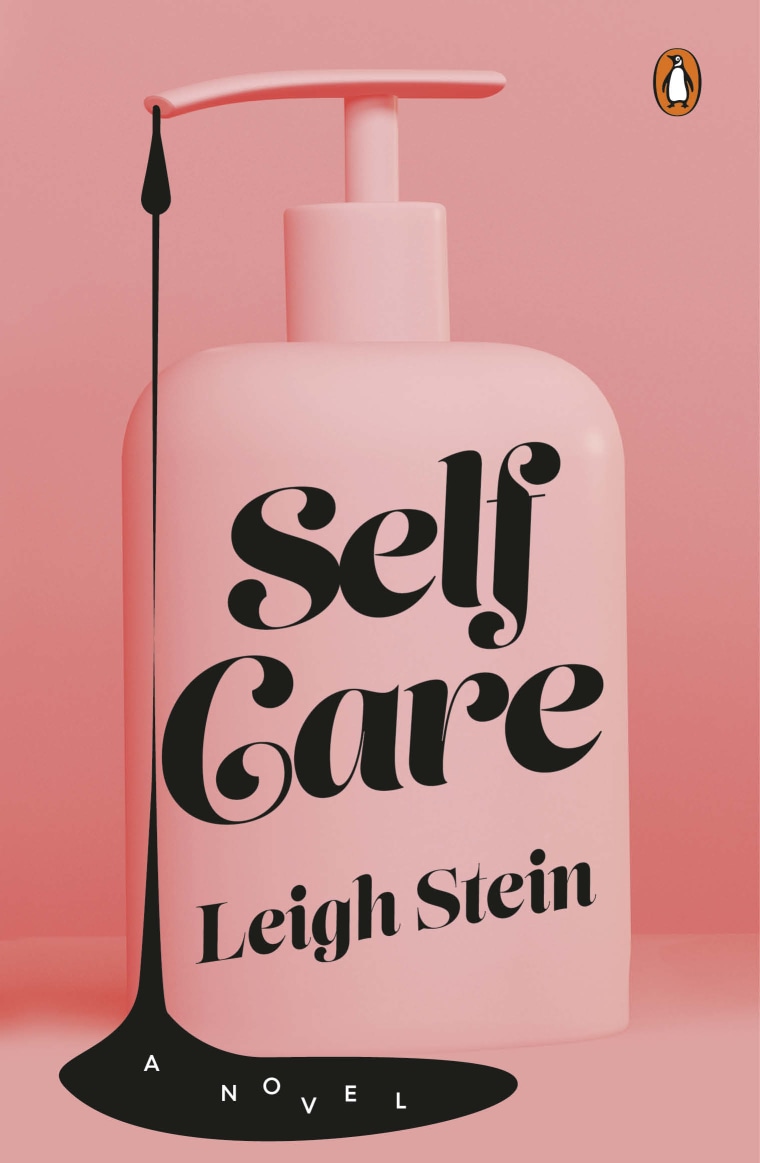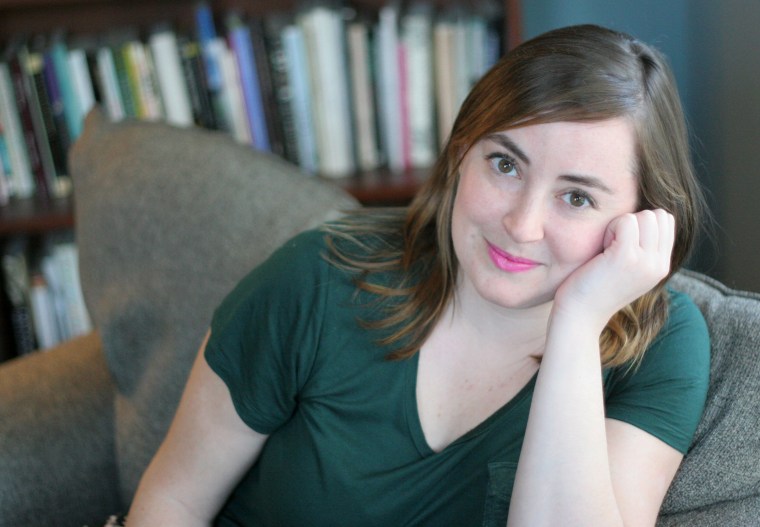After quitting the nonprofit she co-founded in 2017, author Leigh Stein had no more excuses not to write her second novel.
At the time, Stein, a book coach and writing instructor, says she was dedicating most of her personal time to overseeing her nonprofit, a community for women writers, where she served as executive director.
“I thought: ‘Isn’t this ironic that I’m running this organization for women writers but I am too burnt out to write anything myself?’” she tells NBC News BETTER.
Stein, 35, resigned from the nonprofit in May 2017. With a few freelance gigs to pay her bills, she began dedicating her free time to writing her next novel. But writing was still a struggle for Stein, who was battling depression.
“I was burnt out, I was on antidepressants, it was a very dark time,” she recalls.
She knew she needed something to keep her motivated, so she created a spreadsheet to track her novel’s progress. She used the spreadsheet to track “small wins” — the number of words she managed to eke out on a day to day basis — as well as the excuses she made on days when she didn’t write.
The spreadsheet contained five columns:
- A) Date
- B) Number of words written
- C) Number of pages written
- D) Number of hours spent writing
- E) Excuses not to write
Stein, who authors a newsletter about writing, publishing and internet culture, says she finished her novel “Self Care” in 16 months. The novel, she says, is about “the female co-founders of a wellness startup who struggle to find balance between being good people and doing good business.”
Here’s how the spreadsheet helped Stein, who originally wrote about the experience for Medium.com, stick to her goals.
It held her accountable
In the same Google Doc where Stein tracked her freelance work, Stein created a separate spreadsheet titled “You Can Write a Novel.” Since the spreadsheet was located in the same document where she tracked her paid freelance work, she was forced to confront it every day, which she says created a “system of accountability.”
“It doesn’t have to be a spreadsheet, it can literally just be a piece of paper, but it just has to be somewhere that you see it,” says Stein. “So if you created it on your computer, and you never open that file again, it’s not going to help you. It needs to be somewhere visible that you’re reminded every day to check the box or enter your excuse or use it.”
It kept her focused on “small wins”
Writing a novel is a huge project, according to Stein. Sitting before the blank page, not knowing what you’re going to write, and knowing that you need to write hundreds of pages can start to feel daunting if not impossible.
“It’s something I wanted to do, and I also dreaded doing it,” says Stein, “but it feels so good on the days that I did write.”
Stein solved the problem by breaking her novel down into daily, incremental tasks. She knew that if she could write a small number of words each day, those small wins would build into a novel over time.

“I thought, well, I’ll track my words so I can see how many words I write every day, even if it’s a hundred, even if it’s hardly anything,” she says.
Looking over her spreadsheet, Stein says her lowest word count was 76, and the highest 868. On average, she estimates that she wrote about 250 words a day.
“I think the spreadsheet was a way for me to break this large project into daily tasks, and the daily task was sitting down and writing a little bit,” she says.
It laid her excuses bare
Tracking her excuses day to day helped Stein see how much time she wasted. There were a few good excuses, she says, like not being able to write on a particular day because she had to commute from her home in Connecticut to New York City to teach a class. But for every good excuse there was a bad one, according to the novelist. Some of her favorites, as she goes through the list, include “haircut,” “being in a bad mood,” and “hung over.”
“Not proud of that one,” says Stein with a laugh.
Seeing all her poor excuses laid bare motivated her to not fill out the “excuses” column anymore, she says.
“There is just something about being forced to write it down — being forced to look at what [excuse] it is that you’re using that I think helped me as a corrective,” she says.
It helped her put her novel before everything else
When Stein was working full time, she was sacrificing her time for others, spending hours responding to emails and completing tasks for colleagues instead of focusing on her own aspirations. But even after she quit her job, she found herself doing the same thing when it came to her freelance projects.
“We all make excuses no matter what our life looks like,” says Stein. “We can always put other people first, or put other work ahead of our passion projects, so I think this is something anyone can try.”
She says her spreadsheet showed her that if she was going to get her novel done, she would have to work on it first thing in the morning — and not look at any emails or notifications until she did.
She turned off her phone before bed so she could fall asleep at a decent hour and wake up early, and left it off in the morning until after she was done working on her novel. She also turned off notifications on her laptop, and didn’t check her email until she was done working on her book for the day.
“The more I wrote, the more I wrote”
As Stein fell into a new daily routine, she began to write more and more, until it became a habit.
“The more I wrote the more I wrote,” Stein says. “The more days in a row I wrote, the more words I could write in a day. It was like more in the zone versus if I went many days without writing, it was very hard for me to write anything.”
And it all came down to seeing the incremental progress recorded in her spreadsheet, she says.
“Being able to visualize the progress I was making on a big project like a novel I think is really motivating,” says Stein.
“Self Care,” which Stein finished writing in September 2018, will be published in June, according to the author.
“My novel is set in the wellness industry, but it’s also about internet infighting and politics, so I definitely was pulling from life when I started writing the novel,” she says, referring to her experience working in a feminist nonprofit.
Getting her second novel published feels “great” and “exciting,” says Stein, whose first novel “The Fallback Plan,” was published in 2012.
“It’s kind of fun that it’s a novel that takes place very much on the internet,” she says, “but I had to do so many things to keep myself off the internet in order to write it.”
MORE TIPS FOR A BETTER DAY
- 9 things to do this morning to make your whole day more productive
- 12 tips to master your kids' morning routine and eliminate stress
- The productivity hack that allowed me to accomplish more in less time
- 15 protein-packed breakfasts that can help curb cravings
Want more tips like these? NBC News BETTER is obsessed with finding easier, healthier and smarter ways to live. Sign up for our newsletter and follow us on Facebook, Twitter and Instagram.



